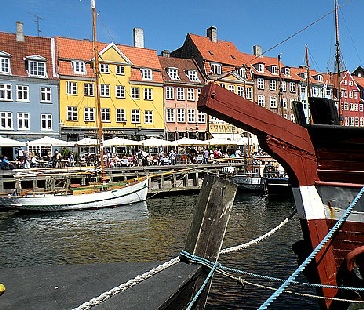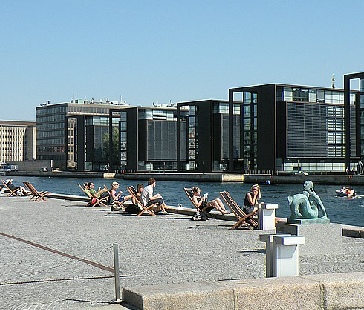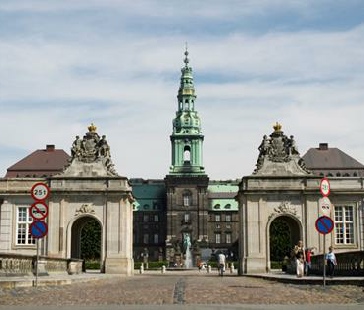Introduction
Copenhagen, one of the largest cities in northern Europe, is also one of Europe's
busiest hubs. The city's location has throughout centuries in an almost natural way
created commercial routes to far and near. Today's Copenhagen is very easy to reach
by air, sea or land. Copenhagen Airport, Kastrup, (airport code CPH) is a major Northern
European air hub with direct flights to most larger European cities as well as transatlantic
and other far away destinations.
Over the waters of the Sound The Øresund Bridge, connecting Copenhagen and Malmö
in Sweden, has made it very easy to cross the sound by car or train which runs around
the clock. Copenhagen also has daily trains to Stockholm, the capital of Sweden,
and with Oslo, the capital of Norway, as well as to many other major cities in the
rest of Europe.
The Port of Copenhagen includes Nordhaven, Frihaven, Langeline, Østhaven and the
Prøvestenen's oil port. The harbour concentrates on conveyance of goods as well as
passengers.

Business in Copenhagen
Because of the unique strategic location of the Danish capital and its excellent
infrastructure, you can easily reach other cities in Europe within a few hours. Since
the opening of the Øresund Bridge in 2000, Copenhagen is the major traffic hub connecting
Scandinavia to the rest of Europe.
The key words of Copenhagen´s business success are efficiency and quality. Most of
the Danes are well educated, more than 80% of them speak English. Taxation and labour
market in combination with the technological infrastructure are major facts for the
development.
In the region of Greater Copenhagen more than 3,400 foreign companies have located
activities and about 60,000 expatriates, of which 40,000 are from the EU and Nordic
countries and North America, live in the region. Most of them experience Denmark
as well-
in the quality of life ranking, only surpassed by Vienna, Austria.

The Political System
Copenhagen City Council consists of 55 members elected for a period of four years.
The council is the city's supreme political body.
It is divided into seven committees with the following grouping and responsibility:
Finance, Culture –
Labour Market, and Building –
Parliamentary system
Denmark has a single-
The Folketing (parliament) has 179 members, based in Copenhagen, including 2 elected
from the Faroe Islands and 2 from Greenland.
Denmark is a member of the European Union, NATO and the Nordic Council and a staunch
supporter of the USA.

![]()
![]()

